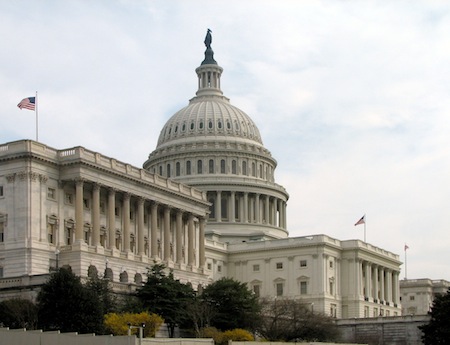Pallone: Internet Platforms Are Policing Content
The smarter way to stay on top of the multichannel video marketplace. Sign up below.
You are now subscribed
Your newsletter sign-up was successful

A high-profile Democrat took aim at web content platforms Wednesday (Nov. 29) in a House hearing on how those platforms, such as social media and search sites, use complex algorithms to shape how news and advertising content gets to consumers.
In his opening statement for the Joint Communications and Digital Commerce Subcommittee hearing, Rep. Frank Pallone (D-N.J.), ranking member of the House Energy & Commerce Committee, said the national dialogue is being "curated" by web platforms "policing content," and that the sites have consolidated into a few key players.
The hearing also dealt with online privacy and security, and included much talk about net neutrality in advance of the FCC's planned Dec. 14 vote to reverse the Title II classification of ISPs and eliminate most of the net-neutrality rules against blocking, throttling and paid prioritization.
"The aim of internet platforms is monetizing web traffic, not public policy," Pallone said. "Algorithms created for the purpose of increasing ad clicks is what ends up shaping what we see online, and too often this content is not an accurate reflection of the real world.
"Structural flaws built into the algorithms used to sort online content may result in racial and other bias in our news feeds," Pallone continued. "As diverse voices are squeezed out, bias increases even further. This is simply not acceptable."
But while Pallone was sounding a warning about websites that appeared to echo at least some of what FCC chair Ajit Pai had talked about in a speech the day before, Pallone also saw Pai's rollback of Title II net-neutrality regs as part of the problem.
"Even now, as we hold a hearing to talk about mitigating bias on the internet, FCC chairman Pai is planning to introduce more bias into the system," Pallone said. "The net-neutrality rules that he plans to destroy are the protections that ensure that we, the people, can decide for ourselves what we do and say online. Chairman Pai’s plan will fundamentally change the free and open internet as we know it.
"Independent voices—those outside the mainstream—may be most at risk simply because they don’t have an affiliation with the companies that run the internet," he added.
The smarter way to stay on top of the multichannel video marketplace. Sign up below.
Other Democrats also invoked the Title II rollback as a threat to the open internet and the free flow of ideas. Rep. Jan Schakowsky (D-Ill.), ranking member of he Digital Commerce Subcommittee, used the occasion to hammer the FCC over media ownership deregulation and the Sinclair-Tribune deal as well. Pallone also registered his concern with that deal.
Contributing editor John Eggerton has been an editor and/or writer on media regulation, legislation and policy for over four decades, including covering the FCC, FTC, Congress, the major media trade associations, and the federal courts. In addition to Multichannel News and Broadcasting + Cable, his work has appeared in Radio World, TV Technology, TV Fax, This Week in Consumer Electronics, Variety and the Encyclopedia Britannica.

